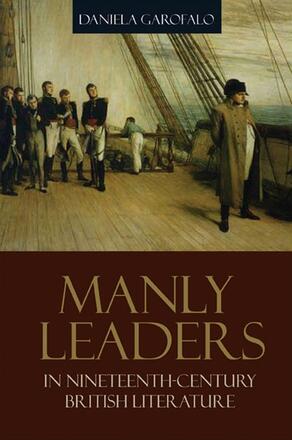
Manly Leaders in Nineteenth-Century British Literature
Alternative formats available from:
Examines fantasies of charismatic, virile leaders in British literature from the 1790s to the 1840s.
Description
From the 1790s to the 1840s, the fear that Britain had become too effeminate to protect itself against the anarchic forces unleashed by the French Revolution produced in many British writers of the period a desire to portray strong leaders who could control the democratic and commercial forces of modernization. While it is commonplace in Romantic studies to emphasize that Romantic writers are interested in the solitary genius or hero who separates himself from the community to pursue his own creative visions, Daniela Garofalo argues instead that Romantic and early Victorian writers are interested in charismatic males—military heroes, tyrants, kings, and captains of industry—who organize modern political and economic communities, sometimes by example, and sometimes by direct engagement. Reading works by William Godwin, William Wordsworth, Jane Austen, Lord Byron, William Hazlitt, Thomas Carlyle, and Charlotte Brontë, Garofalo shows how these leaders, endowed with an inherent virility rather than simply inherited rank, legitimize hierarchy anew for an age suffering from a crisis of authority.
Daniela Garofalo is Assistant Professor of English at the University of Oklahoma.
Reviews
"Garofalo reveals a persistent anxiety in nineteenth-century British writing—a fear that the conditions of modern life would undermine both national and individual will. She shows how a series of writers responded to that threat by constructing a 'manly leader' appropriate to an age of capitalism and political liberalism." — Ted Underwood, author of The Work of the Sun: Literature, Science, and Political Economy, 1760–1860
"The body chapters—especially those on Byron and Hazlitt—work through unfamiliar material with lucidity and verve, connecting ideas and texts not often put in juxtaposition with one another." — John Plotz, author of The Crowd: British Literature and Public Politics